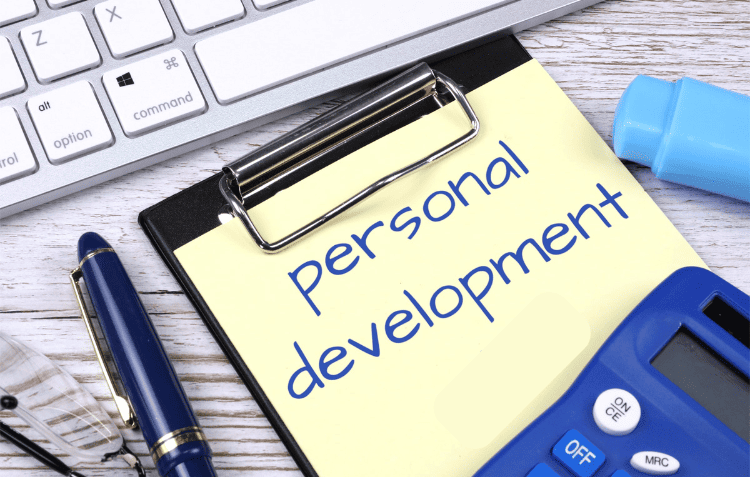Introduction
Personal development goals are essential for achieving both personal and professional success. These goals enable you to unlock your potential, gain new skills, and build a balanced, fulfilling life. Whether it’s enhancing your career, improving relationships, or boosting overall well-being, setting and achieving meaningful personal development goals is the foundation of progress.
As the renowned motivational speaker Zig Ziglar once said, “What you get by achieving your goals is not as important as what you become by achieving your goals.” This article will guide you through defining and achieving personal development goals while offering practical tips, real-world examples, and actionable strategies to help you thrive.
Understanding Personal Development Goals
Personal development goals are intentional actions aimed at improving your abilities, character, habits, and overall life satisfaction. These goals focus on self-growth, ranging from professional skills like leadership to personal aspects such as emotional resilience and physical health.
The Holistic Approach to Personal Development
Personal development goals often intersect across three domains:
- Professional Development: Goals that advance your career, such as mastering time management or improving leadership skills.
- Personal Growth: Enhancing emotional intelligence, fostering self-awareness, or developing a new hobby.
- Physical and Mental Wellness: Prioritizing health through fitness, mindfulness, and stress reduction techniques.
Each domain contributes to a balanced life where growth becomes a continuous, rewarding process.
Why Personal Development Goals Matter
1. Provides Direction and Purpose
Goals give you a clear sense of direction and help you align daily actions with your long-term vision. They serve as a map to achieve the life you aspire to live.
2. Boosts Confidence
Accomplishing personal development goals enhances your self-belief. When you see tangible progress, you’re motivated to aim higher.
3. Builds Resilience
Working toward meaningful goals teaches you to handle setbacks and challenges. It fosters resilience, a skill that’s invaluable in today’s unpredictable world.
4. Enhances Productivity
With clear goals, you can prioritize tasks and avoid distractions. Tools like the Pomodoro Technique are excellent for staying focused and productive.
5. Improves Relationships
When you work on emotional intelligence and communication skills, your relationships—both personal and professional—become more fulfilling.
How to Set Personal Development Goals
Effective goals require structure. Here’s a step-by-step guide to ensure your goals are actionable and impactful.
1. Use the SMART Framework
The SMART framework is a widely recognized method for creating goals:
- Specific: Define what you want to achieve with precision.
- Measurable: Identify metrics to track progress.
- Achievable: Ensure the goal is realistic within your resources and timeline.
- Relevant: Align the goal with your overall life or career objectives.
- Time-Bound: Set deadlines to maintain focus and urgency.
Explore this detailed guide on SMART goal-setting for practical examples.
2. Identify Core Values
Your goals should resonate with your core values. For instance, if the family is your priority, aim to achieve a better work-life balance.
3. Break Down Big Goals
Large goals can be intimidating. Break them into smaller, manageable tasks. For example:
- Goal: Run a marathon in six months.
- Steps: Start with daily runs, increase distance weekly, and join a running group.
4. Create a Vision Board
Visual representations of your goals can keep you motivated. Include images and quotes that inspire you to take action.
Actionable Steps for Achieving Personal Development Goals
To succeed, pair your goals with a structured action plan.
1. Self-Reflection and Assessment
Begin by identifying areas for improvement. Ask yourself:
- What am I good at?
- Where do I struggle?
- What changes will have the greatest impact on my life?
2. Set a Routine
Consistency is key to progress. Incorporate habits that align with your goals into your daily schedule. For example, if improving productivity is your goal, establish a routine that includes focused work hours and regular breaks.
3. Leverage Technology
Productivity apps and tracking tools can help you monitor progress. For work-related goals, consider using task management models like the ones detailed in this task prioritization guide.
4. Seek Accountability
Share your goals with a trusted friend, mentor, or accountability group. Regular check-ins ensure you stay on track.
5. Celebrate Milestones
Rewarding yourself for small achievements boosts motivation. If your goal is to learn a new language, celebrate after completing a chapter or passing a test.
Inspirational Personal Development Goals
1. Master Public Speaking
Public speaking is a valuable skill that builds confidence and opens doors to leadership roles.
Action Plan:
- Join a group like Toastmasters for regular practice.
- Watch TED Talks to learn techniques from experts.
- Practice with friends or record yourself to identify areas for improvement.
2. Build Emotional Intelligence
Emotional intelligence (EQ) enhances your ability to understand and manage emotions—both your own and others’.
Steps to Improve EQ:
- Practice mindfulness to become aware of your emotional triggers.
- Engage in empathetic listening during conversations.
- Reflect on feedback to improve interactions.
3. Prioritize Work-Life Balance
Achieving harmony between work and personal life is crucial for long-term happiness.
Strategies:
- Set boundaries, such as fixed work hours.
- Dedicate time for hobbies or family activities.
- Explore this guide on stress management for work-life balance to reduce burnout.
4. Learn a New Skill
Continuous learning keeps you adaptable in a fast-changing world.
Examples:
- Take an online course in coding, design, or digital marketing.
- Develop a creative hobby like photography or painting.
Real-Life Success Stories
Oprah Winfrey
Oprah attributes her success to a lifelong commitment to self-improvement. By setting goals to overcome personal hardships, she cultivated resilience and built an empire rooted in empowering others.
Bill Gates
Despite being a tech giant, Gates continually pursues self-education. He sets yearly goals to read dozens of books, a habit that broadens his perspectives and informs his philanthropic work.
J.K. Rowling
Before becoming a bestselling author, Rowling overcame significant personal and financial challenges. Her perseverance in setting and pursuing creative goals led to her success with the Harry Potter series.
Overcoming Common Challenges in Goal Setting
1. Procrastination
Break tasks into smaller, actionable steps to make them less overwhelming. Tools like the Pomodoro Technique can help maintain focus and momentum.
2. Fear of Failure
Reframe failure as a stepping stone. Each setback provides an opportunity to learn and improve.
3. Lack of Motivation
Regularly revisit your “why” to reignite your passion. Surround yourself with supportive, like-minded individuals.
Motivational Quotes for Your Journey
- “The future depends on what you do today.” – Mahatma Gandhi
- “You don’t have to be great to start, but you have to start to be great.” – Zig Ziglar
- “Success is the sum of small efforts, repeated day in and day out.” – Robert Collier
Conclusion
Personal development goals are a lifelong investment in becoming the best version of yourself. By setting SMART goals, taking consistent action, and overcoming obstacles with resilience, you can achieve transformative growth. Whether your focus is career advancement, emotional intelligence, or physical well-being, the steps you take today will shape the future you desire.
Remember, the journey to self-improvement is continuous. Start small, dream big, and embrace every step with determination and positivity. As you work toward your goals, you’ll not only transform your life but inspire others to do the same.
Start building a better you today—your future self will thank you.
FAQs
What are the 5 goals for success?
Five key goals for success include:
- Career Advancement: Setting clear milestones like earning promotions or mastering new skills.
- Financial Stability: Creating and adhering to a budget or increasing savings.
- Health Improvement: Incorporating regular exercise and balanced nutrition.
- Skill Development: Gaining expertise in areas like public speaking or technology.
- Work-Life Balance: Prioritizing time for family, hobbies, and self-care to reduce burnout
What are the 5 points of personal development?
The five foundational areas of personal development are:
- Mental Growth: Enhancing focus and knowledge through learning and mindfulness.
- Emotional Growth: Cultivating emotional intelligence and resilience.
- Social Development: Building and maintaining meaningful relationships.
- Physical Well-being: Staying fit and healthy for optimal productivity.
- Spiritual Growth: Aligning actions with personal values and inner peace
What is an example of a good development goal?
A strong development goal follows the SMART framework. For instance, improving public speaking by joining a group like Toastmasters, practicing weekly, and delivering a presentation within three months aligns with being Specific, Measurable, Achievable, Relevant, and Time-bound.
How do I develop myself?
Developing yourself involves:
- Setting SMART goals tailored to your ambitions.
- Breaking goals into manageable tasks.
- Regularly reflecting on your progress and adjusting strategies.
- Seeking feedback from mentors or peers for growth.
- Fostering habits like mindfulness, continuous learning, and self-care
What are personal development goals?
Personal development goals are purposeful objectives designed to improve specific skills, habits, or aspects of life, such as communication, emotional intelligence, or work-life balance. These goals are aligned with long-term aspirations and focus on continuous self-growth, often encompassing areas like career, health, relationships, and personal satisfaction.
What are the 7 SMARTER goals?
The SMARTER goal-setting framework builds upon the classic SMART model by adding “Evaluate” and “Readjust” for a more dynamic and effective approach:
- Specific: Clearly define your goal to avoid vagueness. For instance, “Increase sales revenue by 20% this quarter” is more actionable than “Do better at work.”
- Measurable: Include metrics to track progress, like “Complete 10 client calls daily.”
- Achievable: Ensure the goal is realistic and within your resources. For example, doubling revenue in one week might be overly ambitious.
- Relevant: Align the goal with broader aspirations or values, such as career growth or personal fulfillment.
- Time-Bound: Set a deadline to create urgency, like “Achieve certification within six months.”
- Evaluate: Regularly review progress to determine what’s working or needs improvement. Weekly or monthly check-ins can help.
- Readjust: Update goals as circumstances change or new insights emerge, ensuring they remain relevant and realistic



